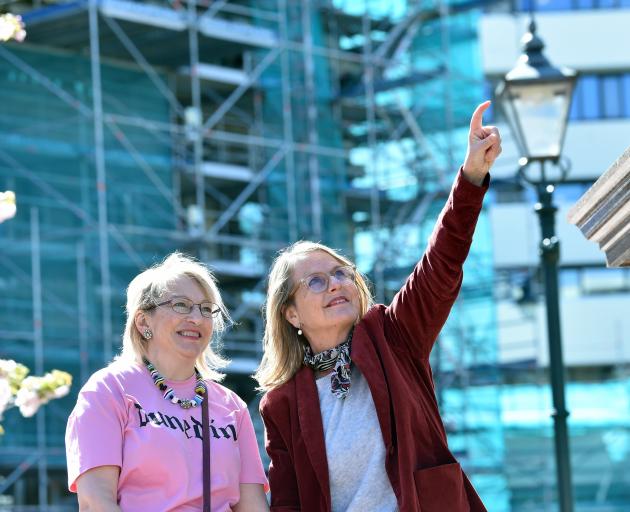Former Southern Heritage Trust chairwoman Jo Galer said there was a lot of uncertainty about the changes and the impact they might have on the city.
Engineers and building owners were concerned their ability to pay for renovations and restoration of their buildings could be affected, she said.
"I’m really hopeful that there will be positive changes for Dunedin’s heritage, but the devil will be in the detail," she said.
Ms Galer, who is also a candidate for the Dunedin City Council, said the government needed to understand Dunedin’s situation.
Built heritage was vitally important for the city and Dunedin had to be thought about carefully, she said.
The government announced this week it intended to bring in legislative change aimed at making the earthquake-prone building system pragmatic and to enable more cost-effective approaches to seismic strengthening.
However, coastal Otago, including Dunedin, would shift from low to medium seismic risk.
"I’m cautiously optimistic, but at the same time I’m very nervous — very nervous at what this means for Dunedin," Ms Galer said.
Dunedin had a high concentration of heritage buildings in its central business district.
"We cannot afford to lose our main point of difference."
Dunedin property developer and city council candidate Russell Lund said there would be big advantages for the city if it was still considered a low seismic risk.
"So these changes are very much about helping mainly in the small towns, but also in Auckland and in Northland," he said.

Mr Lund said a series of projects could not proceed in Dunedin under the existing rules.
"Well, this isn’t going to change that."
Mr Lund said most heritage buildings in the central business district could be considered earthquake-prone under the new rules.
However, Earthquake Science chairman Prof Mark Stirling said medium risk was the appropriate assessment for the area.
The area from Dunedin south to about Kaitangata was the highest hazard because of the Akatore Fault, he said.
His work involved characterising all the major faults in Otago.
"Also, the work on the method in terms of developing the seismicity models and the ground-motion models has all been updated and so the bottom line for that is the hazard is higher than previously appreciated."
Dunedin was considered a medium hazard, "but the risk is relatively high because of the built environment and the vulnerability of the environment".
Dunedin city councillor and mayoralty candidate Sophie Barker said she was optimistic the government’s overall approach would make things better for building owners.
"In the end, that’s what we want ... the ability to refurbish and look after our heritage buildings."
However, the details would have to be examined.
"I’ll be really interested to see some more analysis on how it affects the buildings that we know of," Cr Barker said.












